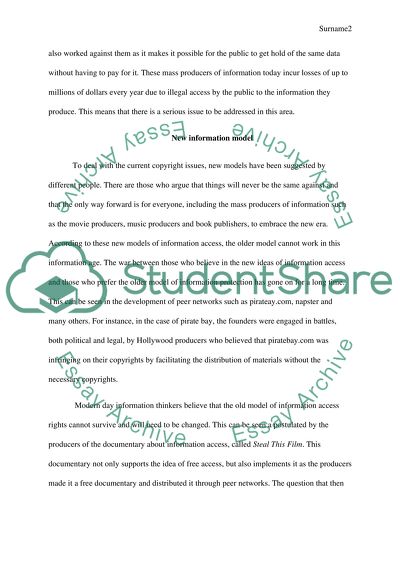Cite this document
(“Communication and Emerging Technologies: Open Access, Piracy, and the Essay”, n.d.)
Communication and Emerging Technologies: Open Access, Piracy, and the Essay. Retrieved from https://studentshare.org/information-technology/1487778-communication-and-emerging-technologies-open
Communication and Emerging Technologies: Open Access, Piracy, and the Essay. Retrieved from https://studentshare.org/information-technology/1487778-communication-and-emerging-technologies-open
(Communication and Emerging Technologies: Open Access, Piracy, and the Essay)
Communication and Emerging Technologies: Open Access, Piracy, and the Essay. https://studentshare.org/information-technology/1487778-communication-and-emerging-technologies-open.
Communication and Emerging Technologies: Open Access, Piracy, and the Essay. https://studentshare.org/information-technology/1487778-communication-and-emerging-technologies-open.
“Communication and Emerging Technologies: Open Access, Piracy, and the Essay”, n.d. https://studentshare.org/information-technology/1487778-communication-and-emerging-technologies-open.


